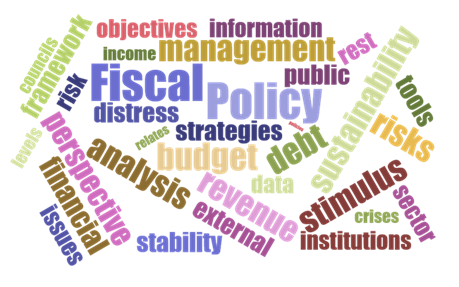Tax Administration Diagnostic Assessment Tool (TADAT)

This course, presented under the auspices of the Fiscal Affairs Department, is designed to equip participants with thorough knowledge of the TADAT methodology, tax administration international good practice, and the necessary professional skills to conduct formal or internal/self-benchmarking TADAT assessments. Further, the training program participants are guided in: (i) the interpretation assessment results and their use as input to strengthen or update tax administration reform strategies and work plans; and (ii) how TADAT metrics can be incorporated into day-to-day tax administrations’ performance monitoring and evaluation systems as well as using the TADAT assessment results as a baseline. Trainers will use practice exercises depicting real field scenarios to illustrate the application of the TADAT methodology. Analytical models derived from the TADAT assessment results will demonstrate the potential use of the TADAT framework to improve taxpayer compliance management. An exam (with a 75 percent pass mark) is offered for participants interested in being certified as TADAT-trained persons or assessors, depending on eligibility criteria.
Target Audience
Mid-level to senior tax/revenue administration officials from domestic tax/revenue administrations, ministries of economy and finance or equivalent that deal with revenue/tax issues, subnational tax administrations, national audit offices, and capacity development providers assisting with tax/revenue administration or public finance reforms.
Qualifications
Relevant experience in tax/revenue administration or capacity development assistance areas or projects related to revenue/tax/public finance reform issues.
Course Objectives
Upon completion of this course, participants should be able to:
- Demonstrate an in-depth understanding of tax administration international good practices.
- Understand the use of the TADAT measurement metrics to assess the performance of a country’s system of tax administration.
- Write components of a quality TADAT Performance Assessment Report (PAR).
- Interpret TADAT assessment results holistically.
- Understand associations/linkages between the various TADAT measurable dimensions and how they might impact each other and tax administration reform efforts.
- Use TADAT assessment results as inputs into developing or strengthening tax administration reform strategies and work plans.
- Identify the essential elements of and how to manage an assessment team and stakeholder dynamics.
Monetary and Financial Statistics (MFSX)
English | October 15, 2024 - December 17, 2024 | Online Training | Course conducted online
Apply online by November 22, 2024
Nowcasting (NWC)
English | February 17-28, 2025 | In-person Training | New Delhi, India
Apply online by November 22, 2024
Selected Issues in the Regulation of Fintech (SIFR)
English (French, Portuguese) | January 13-17, 2025 | In-person Training | Ebene, Mauritius
Apply online by November 22, 2024
Managing Capital Flows: Macroeconomic Analysis and Policies (MCF)
English | February 10-21, 2025 | In-person Training | Singapore, Singapore
Apply online by November 22, 2024
Building Institutions to Fight Corruption (BIFC)
English (Russian) | March 3-7, 2025 | In-person Training | Vienna, Austria
Apply online by November 24, 2024


